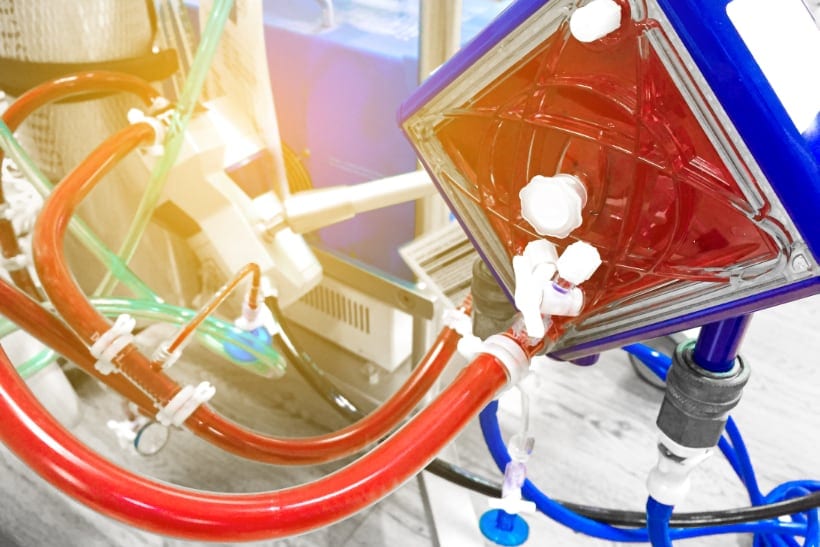A new study published in the New England Journal of Medicine has found that early routine extracorporeal membrane oxygenation (ECLS) treatment does not improve survival in patients with acute myocardial infarction (AMI) complicated by cardiogenic shock. 10% of hospital admissions with myocardial infarction are complicated by cardiogenic shock with high (40-50%) 30-day mortality. There has been an increasing use of extracorporeal life support for the treatment of infarct related cardiogenic shock, without clear evidence to support this strategy.
Conducted across 44 centres, in Germany and Slovenia, this study enrolled 420 patients (median age 63 years, IQR 56 to 70, 81.3% male), presenting with AMI complicated by cardiogenic shock and planned early revascularisation. Participants were randomised immediately post coronary angiography to ECLS implantation and medical therapy, or medical therapy alone.
30-day mortality was not significantly different between the two groups. 47.8% in the ECLS group versus 49.0% in the medical therapy group (relative risk, 0.98; 95% confidence interval [CI], 0.80 to 1.19; P = 0.81). Complication rates were higher in the ECLS group than the control group; moderate-severe bleeding (23.4% versus 9.5%, relative risk, 2.44; 95% CI, 1.50 to 3.95); significant vascular complications 11.0% versus 3.8%.
This trial demonstrates a lack of benefit for the use of ECLS in this setting, with evidence of harm related to procedural complications and bleeding. It appears that despite physiological plausibility, the use of ECMO for these patients does not improve survival. Dr Gregory Lim has written a useful editorial summarising the available evidence in this area, for further interest: https://www.nature.com/articles/s41569-023-00929-4
See the full ECLS-SHOCK paper here: https://www.nejm.org/doi/full/10.1056/NEJMoa2307227

